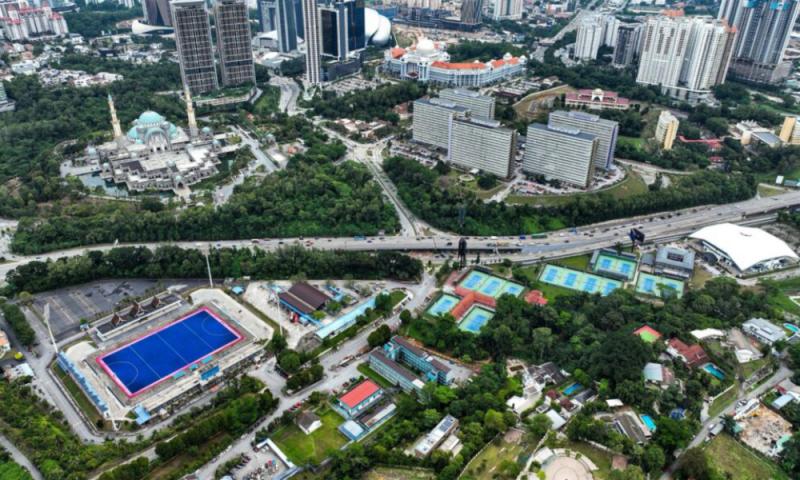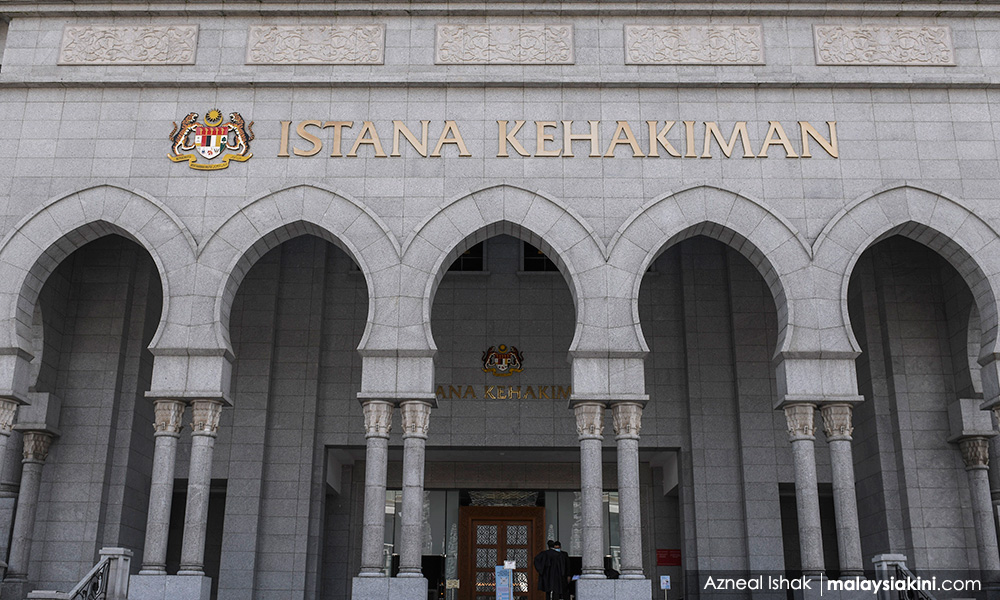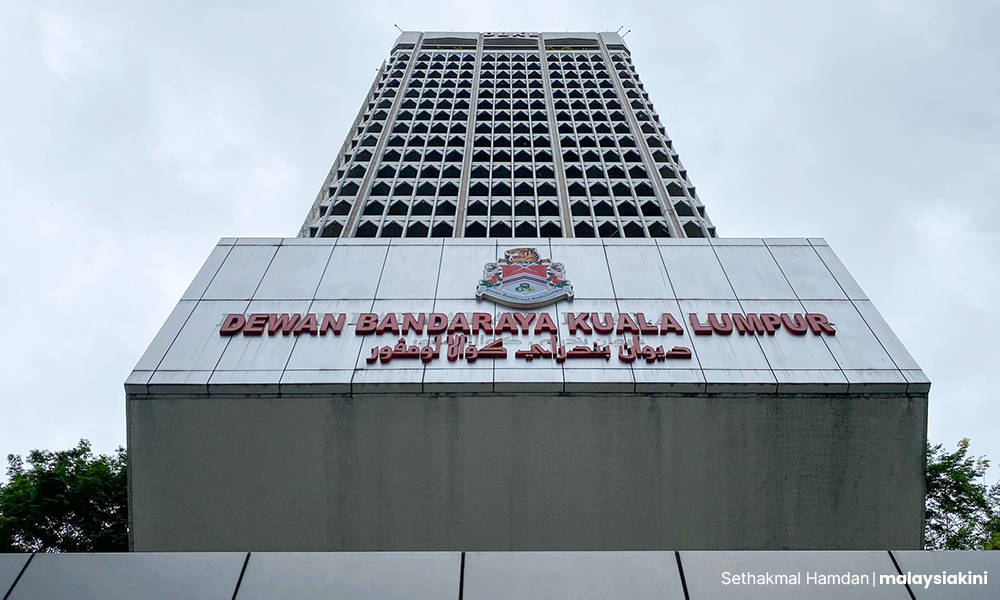

R Nadeswaran
Published: Dec 29, 2024 2:20 PM
COMMENT | The Land Acquisition Act 1960 provides for the state to acquire land from anyone for a public purpose, including the construction or expansion of public amenities like drainage and transportation, such as roads and railways.
With these vast powers wrested, the state authorities can acquire any piece of land, and the law provides for compensation to the owners.
There have been accusations and court decisions in which the application to acquire was deemed to have been made illegally or in bad faith.
The much-publicised case involving Semantan Estates and the government is a case in point.
The courts declared the government “a trespasser” on 263.272 acres of prime land in the Kuala Lumpur enclave of Jalan Duta, on which stand the National Hockey Stadium, the National Tennis Complex, the Institute of Islamic Understanding Malaysia, the Federal Territory Mosque, the National Archives, the Inland Revenue Office Complex, and several other government buildings.
The High Court ruled that the disputed land in Mukim Batu, Kuala Lumpur, known as the “Duta Enclave”, should be returned to Semantan Estate Sdn Bhd (SESB).
Hence, the government’s 1956 acquisition of the land was declared invalid.
In a 12-page judgment released on Oct 21, judge Ahmad Shahrir Mohd Salleh said the government was and is still unlawfully occupying the land due to a botched acquisition.
“This fact was found as such by the High Court, affirmed by the Court of Appeal, and subsequently the Federal Court. Even an attempt to review the decision of the Federal Court fell flat to the ground.
“Prior to the acquisition, the land belonged to the plaintiff (SESB) and had the acquisition been valid and lawful, the land would belong to the government,” said the judge.
Additional info submission
On Nov 7, the Court of Appeal directed the parties involved in the legal dispute to submit additional information regarding the land’s value.
Published: Dec 29, 2024 2:20 PM
COMMENT | The Land Acquisition Act 1960 provides for the state to acquire land from anyone for a public purpose, including the construction or expansion of public amenities like drainage and transportation, such as roads and railways.
With these vast powers wrested, the state authorities can acquire any piece of land, and the law provides for compensation to the owners.
There have been accusations and court decisions in which the application to acquire was deemed to have been made illegally or in bad faith.
The much-publicised case involving Semantan Estates and the government is a case in point.
The courts declared the government “a trespasser” on 263.272 acres of prime land in the Kuala Lumpur enclave of Jalan Duta, on which stand the National Hockey Stadium, the National Tennis Complex, the Institute of Islamic Understanding Malaysia, the Federal Territory Mosque, the National Archives, the Inland Revenue Office Complex, and several other government buildings.
The High Court ruled that the disputed land in Mukim Batu, Kuala Lumpur, known as the “Duta Enclave”, should be returned to Semantan Estate Sdn Bhd (SESB).
Hence, the government’s 1956 acquisition of the land was declared invalid.
In a 12-page judgment released on Oct 21, judge Ahmad Shahrir Mohd Salleh said the government was and is still unlawfully occupying the land due to a botched acquisition.
“This fact was found as such by the High Court, affirmed by the Court of Appeal, and subsequently the Federal Court. Even an attempt to review the decision of the Federal Court fell flat to the ground.
“Prior to the acquisition, the land belonged to the plaintiff (SESB) and had the acquisition been valid and lawful, the land would belong to the government,” said the judge.
Additional info submission
On Nov 7, the Court of Appeal directed the parties involved in the legal dispute to submit additional information regarding the land’s value.

The submissions should address the calculation of compensation owed to Semantan Estate (1952) Sdn Bhd, should the court rule in its favour, and whether the compensation should be based on the current market value or the value at the time the government acquired the land.
In the case of MMC Tepat Teknik Sdn Bhd v Pentadbir Tanah Daerah Klang, the Federal Court highlighted that adequate compensation must be paid for the deprivation of another’s property, more so where that deprivation is the result of compulsory purchase or acquisition.
It said this is a guarantee under Article 13(2) of the Federal Constitution, which stipulates that “no law shall provide for the compulsory acquisition or use of property without adequate compensation.”
Against such a backdrop, how and why did the Kuala Lumpur City Hall (DBKL) put the cart before the horse in building a road on privately owned land?
Why did it belligerently deny the owners their rights provided in the law instead of making the acquisition and paying adequate compensation?
No answers have been forthcoming.
Nothing would have happened until public attention was drawn to the issue by a resident who blocked a section of the road in front of his home in protest.
Long-standing encroachment
In 2022, the issue made headlines after the resident placed a 3.04m x 6.09m steel container on the road for two weeks and cordoned off the site with traffic cones.
DBKL officers had requested the owner to remove the obstruction at the time.

In October last year, he blocked the road again, citing DBKL’s failure to address the matter. This time, he used construction barriers and signs to show how much of his land had been encroached upon.
Finally, last week, the owners of 21 lots in Jalan Bukit Desa, including the 14 terrace houses affected by the long-standing encroachment along Jalan Bukit Desa in Taman Desa, Kuala Lumpur, received compensation of about RM6mil.
The compensation, calculated based on the square footage of the land, current market value, and additional costs incurred by them due to the loss of land, ranged from RM350,000 to RM950,000 each.
After the affected residents met with DBKL last January, the local authority initiated legal proceedings in June to acquire portions of the private land on Jalan Bukit Desa, where the road had been constructed.
In a statement, DBKL said it had applied to acquire the land acquisition through PTGWP, the Federal Territories Department, and the Lands and Mines Department director-general for approval to begin the process.
Residents received a compensation award notice from the PTGWP in October and began receiving the funds late last month.
Why such a protracted course of events even after the DBKL built the road on disputed land?
Common sense and law
Doesn’t common sense and the law require that acquisitions be completed unless they must be carried out urgently?
Section 19 of the Act states that if the land is urgently required for use for a public purpose or a public utility in the case of an acquisition, the State Director may, on or after the expiration of 15 days from the date of the giving of such notice, issue a Certificate of Urgency directing the Land Administrator to take possession of such land.
When residents first raised the issue, DBKL knew it had illegally “occupied” the land. It was also aware that adequate compensation had to be paid.
In the same housing estate, a land reserve which belonged to the police ended up in the hands of a developer.
Former federal territories minister Khalid Abdul Samad asked, "Who decided to give the land to a developer?”
“The MP and residents there didn’t know about this. All of a sudden, the reserve land has approval for development purposes.”

Khalid Abdul Samad
Was it a little Napoleon or a group of them who decided on matters of such importance or was it because of DBKL’s competence or lack thereof?
Here is the downside - nothing will happen to those who prolong such issues with their interpretation of the law. Firmly entrenched in their positions and discarding the fact that rate players are their clients who pay their salaries, such attitudes have become part of their work culture.
This is how the system works; unless steps are taken to deter such cases, many more will emerge.
R NADESWARAN is a veteran journalist who writes on bread-and-butter issues. Comments: citizen.nades22@gmail.com
Here is the downside - nothing will happen to those who prolong such issues with their interpretation of the law. Firmly entrenched in their positions and discarding the fact that rate players are their clients who pay their salaries, such attitudes have become part of their work culture.
This is how the system works; unless steps are taken to deter such cases, many more will emerge.
R NADESWARAN is a veteran journalist who writes on bread-and-butter issues. Comments: citizen.nades22@gmail.com

A "rotten to the core" administrative system filled with hp6/kaji buta legal 'experts', well kabel-ed freeloaders, saya yang mengikut pemerindah sidekicks & l can do anything l wish wet dreamed leaders.
ReplyDeleteAny wonder?
More will follow, as abang-adikism is so entrenched & entangled that scratching each other's back is Norm. After all, the compensations r paid by the complainers themselves - in a rounded way!